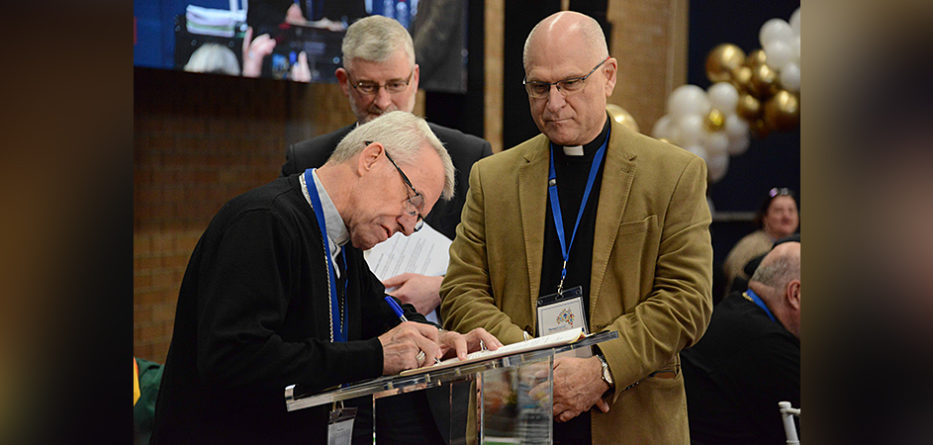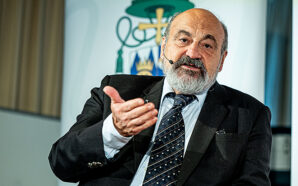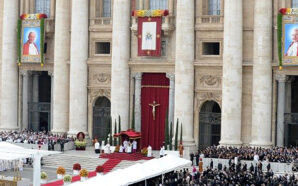In the second part of this exclusive interview with America, Archbishop Timothy Costelloe, S.D.B., the president of the Australian bishops’ conference, discusses the Plenary Council of the Church in Australia that was held from 2018 to 2022, of which he served as president. He explains that, unlike the German synodal way, the Australian Plenary Council did not have its origins in the abuse crisis. He goes on to identify the top three priority conclusions that emerged from that historic event: care for Indigenous people, the abuse crisis and the role of women in the church.
RELATED: Australian Archbishop Costelloe tells Pope Francis ‘The church in Australia is alive’
When the plenary commission finally met again, the archbishop said, three priorities emerged.
Archbishop Costelloe identified the first priority as “the way the Plenary Council, all through the whole journey, and very strongly in the second assembly, focused on the whole question of the Indigenous people in Australia, the Aboriginal people and the need for the church to make our response to their situation a major priority.”
Although the council was not a direct response to the abuse crisis, “there was a very strong recognition that our response to this dreadful reality in the church in Australia is very much an issue for us, and the ongoing business of the church probably for as long as any of us will be around,” the archbishop said. “The council wanted to underline the absolute need for an ongoing commitment to this.”
Archbishop Costelloe said the third major priority to emerge from the Plenary Council is “the role of women in the life of the church,” the debate over which led to a “moment of crisis.” The Salesian archbishop explained: “What I think is at issue is the relationship between the role of women and the role of the ordained ministry. Even if you leave the ordination question aside for a moment, there is still a great need to explore ways of engaging women in all other levels of the life of the church in significant roles. There is still a lot of work to be done.”
To continue reading this article, click here.
Gerard O’Connell is America’s Vatican correspondent and author of The Election of Pope Francis: An Inside Story of the Conclave That Changed History. He has been covering the Vatican since 1985.
With thanks to America and Gerard O’Connell, where this article originally appeared.







